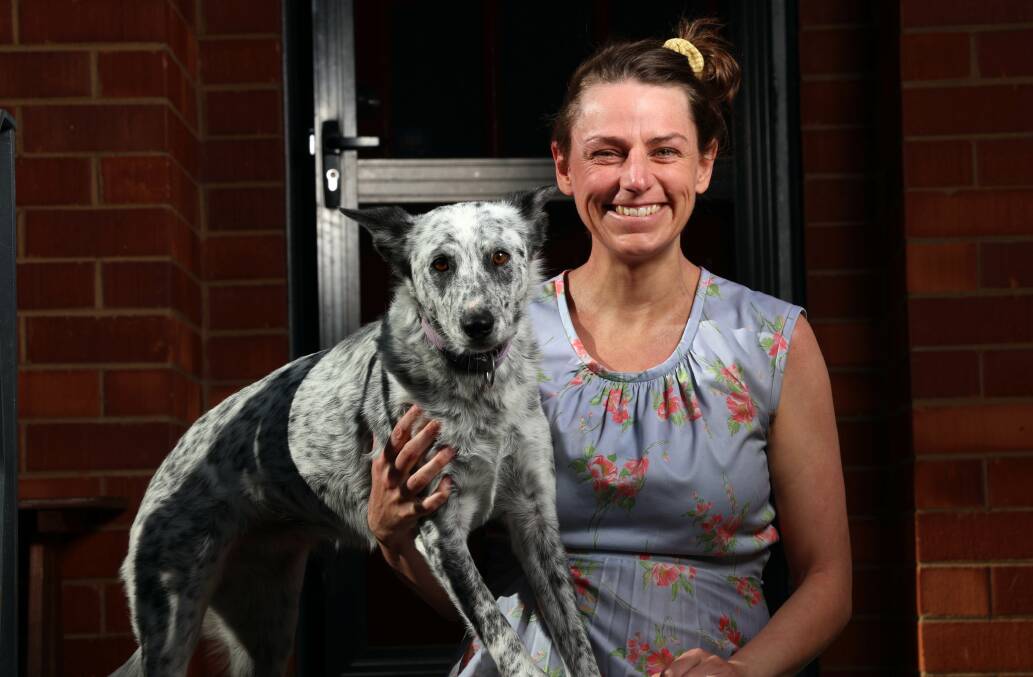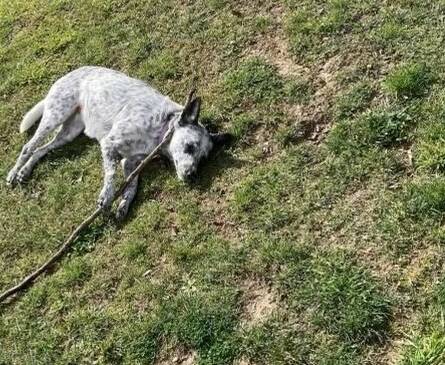When Olive started wobbling around one Saturday, Kathryn Hind knew something was wrong - what she didn't imagine was that the dog was high on cannabis.
As Olive started showing more and more erratic signs, her owner decided to take the animal to the emergency vet. A test revealed traces of the narcotic.
"I was absolutely shocked," she said. It hadn't crossed her mind. She lives in a drug-clean home. She surmised that Olive had gulped something down near a school in the area where the dog had been walked that morning.
Olive is smart as paint. She's half pure-bred collie, a quarter cattle dog and a quarter something else which can't be determined (a mystery mix, as Kathryn Hind describes it).
But on this Saturday, the dog was out of sorts.
"Her gait was odd. It seemed like she was going to tip over when sitting begging for treats," Ms Hind said.
"She was overwhelmed by the presence of the other dogs. Her senses were off, and she was worryingly not herself.
"She was a different dog. Uncoordinated." She said the dog was moving with a rabbit hop.

It's just one case in what Canberra vets say is a growing trend as drugs become less criminalised.
"As the decriminalisation and even legalisation of marijuana has occurred, cases of toxicity in animals have unfortunately increased," vets at the Kippax Vet Hospital said.
"Marijuana seems to have a much more profound effect in pets than in humans," the Canberra vets said on the animal hospital website.
The poisonous ingredient of cannabis is THC (tetrahydrocannabinol) which affects the nervous system.
The Canberra vets say it's rare for pets to die but symptoms can be pronounced, including "depression, lack of coordination, dilated pupils, tremors, seizures, and coma.
Other signs that can occur are vomiting, salivation, low blood pressure, slow heart rate (but sometimes a fast heart rate can happen)".
Kathryn Hind doesn't know what Olive ate on the walk which included Hackett Oval.
The dog was seen eating something "animal-like" but that is unlikely to be the source of the poison.
The owner wonders if it was some sort of baked cannabis biscuit.

Other less savoury sources are possible.
Two vets in Melbourne studied 15 cases in four 24-hour veterinary emergency hospitals and concluded that human excrement can be a source.
Part of the problem, according to one of the researchers, Clara Launinger, is that home-grown marijuana can be strong, and far too strong for animals.
Home-grown marijuana goes into humans and comes out of humans and dogs eat the result, the researchers found.
It remains a mystery how this happens but researchers are adamant that it does.
"Home-grown marijuana, where we don't know the concentration, is quite toxic to dogs," Dr Launinger said.
"We don't know if they are ingesting a crazy amount if they ingest a cookie or get into someone's stash."
Olive was treated with a charcoal substance which acts to bind any toxins together so they don't pass into the blood stream.
"The symptoms were very scary. I was very worried about her but she's made a full recovery," Ms Bind said.







